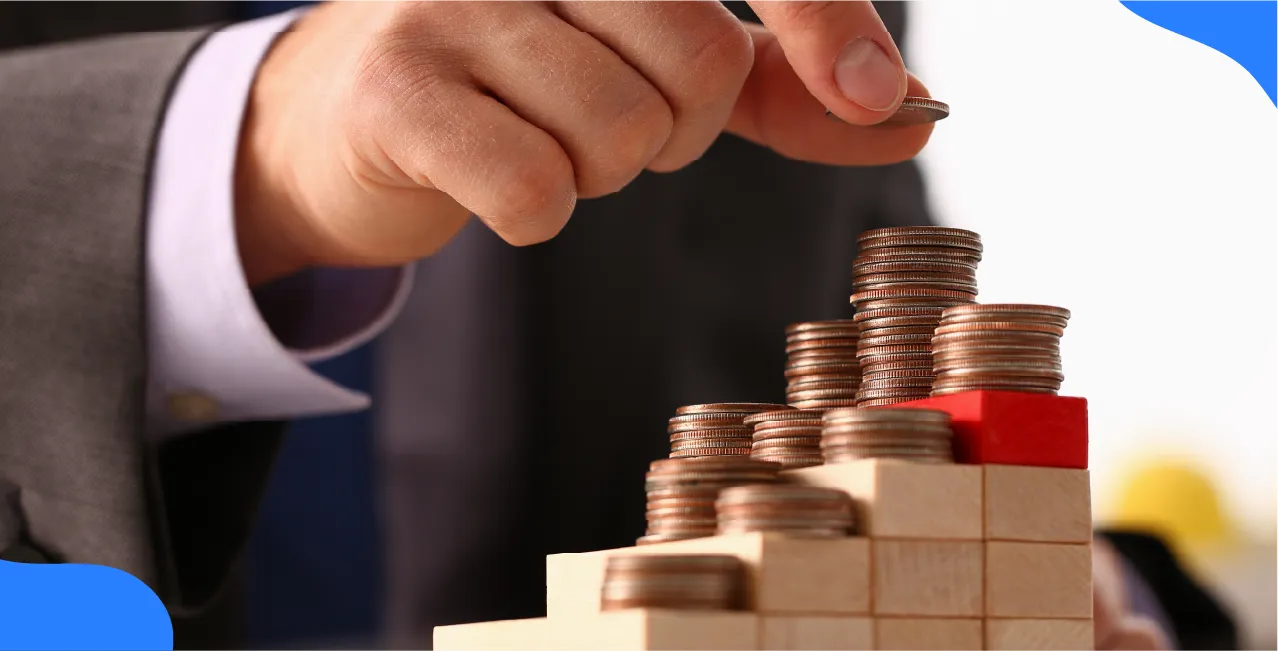What Is Fixed Capital? Meaning, Examples & Importance in Business

Check Your Loan Eligibility Now
By continuing, you agree to LoansJagat's Credit Report Terms of Use, Terms and Conditions, Privacy Policy, and authorize contact via Call, SMS, Email, or WhatsApp
Let’s say Meera starts a small cafe in Jaipur.
She invests ₹10,00,000 as fixed capital:
- ₹6,00,000 on furniture and kitchen equipment
- ₹3,00,000 on interior renovation
- ₹1,00,000 on a billing and inventory system
Then she keeps ₹3,00,000 as working capital for rent, staff salaries, raw materials, and electricity.
This balance helps her serve 100 customers/day, earning ₹12,000 daily. Monthly? That’s ₹3,60,000!
Isn’t it interesting how her one-time investment builds a foundation, while her working capital keeps the café running?
Fixed capital sets up the cafe, and working capital runs it daily. Both are needed to keep the business going smoothly.
What Is Fixed Capital?
Fixed capital includes long-term assets used to generate business income steadily. It’s not consumed quickly and helps in long-term production and growth.
Let’s understand it with the help of an example:
Let’s say Rahul starts a small bakery business. To begin, he buys an oven for ₹1,50,000 and a display counter for ₹50,000. These items won’t be sold and will help him bake and display cakes for many years.
This ₹2,00,000 is his fixed capital. It’s a one-time investment in assets that won’t be used up in a month but over several years. Unlike ingredients or packaging (working capital), these assets stay in the business and support regular production.
So, fixed capital helps build the base for long-term business operations.
What Are The Key Features of Fixed Capital?
Fixed capital refers to long-term assets used in business operations. Below is a table outlining the key features of fixed capital:
Fixed capital plays a crucial role in building a business’s foundation, driving production, and supporting long-term growth despite its lower liquidity and higher risk.
What Are The Sources of Fixed Capital?
Fixed capital is essential for acquiring long-term assets, and businesses use various sources to fund it. The table below explains the major sources of fixed capital:
Read More –What is Capital Structure? Meaning, Types & Importance
Each source of fixed capital has its advantages and limitations. Choosing the right mix depends on the business’s goals, financial health, and long-term plans.
What Is The Importance of Fixed Capital in Business?
Let’s say Priya starts a textile business by investing ₹50,00,000 in fixed capital ₹20,00,000 on land and building, ₹25,00,000 on machines, and ₹5,00,000 on software systems.
As a result, her daily production doubles to 1,000 garments, labour costs drop by ₹50,000/month, and design processes become faster.
The factory ensures stability, and the land’s value rises to ₹30,00,000 in 5 years. This investment in fixed capital helps things run more smoothly, improves efficiency, and builds a solid base for future growth and new ideas.
Importance of Fixed Capital in Business:
Fixed Capital vs. Working Capital:
Also Read - What Is Capital Expenditure? Meaning, Examples & Accounting Impact
Fixed capital and working capital serve different but equally important roles in business finance. The table below highlights their key differences across various aspects.
Understanding the distinction between fixed and working capital helps businesses manage resources wisely, ensuring both long-term growth and smooth day-to-day functioning.
Conclusion
Fixed capital and working capital are two essentials for any business. Fixed capital is used to set up things like machines and buildings, while working capital helps run daily needs like paying bills and buying materials. Both work together to keep a business running and growing. So, plan wisely, build strong, run smart, and watch your business succeed!
FAQs:
Q1: What is fixed capital in business?
Fixed capital is money invested in long-term assets like land, machinery, and equipment.
Q2: How is working capital different from fixed capital?
Working capital covers daily expenses, while fixed capital supports long-term setup and growth.
Q3: Can fixed capital be converted into cash quickly?
No, fixed capital is less liquid and not easily converted into cash.
Q4: What are common sources of fixed capital?
Equity, debt, retained earnings, government subsidies, and venture capital.
Q5: Why is fixed capital important for a business?
It builds the foundation for operations, boosts efficiency, and supports long-term expansion.
Other Related Pages | |||
About the author

LoansJagat Team
Contributor‘Simplify Finance for Everyone.’ This is the common goal of our team, as we try to explain any topic with relatable examples. From personal to business finance, managing EMIs to becoming debt-free, we do extensive research on each and every parameter, so you don’t have to. Scroll up and have a look at what 15+ years of experience in the BFSI sector looks like.
Subscribe Now
Related Blog Post

Salaried vs. Self-Employed: Who Gets a Personal Loan Faster in 2025?

Too Many EMIs? What to Do When Monthly Payments Become Unmanageable

Post Office Customer Care Number: Helpline & Support
Recent Blogs
All Topics
Contents
Quick Apply Loan
Consolidate your debts into one easy EMI.
Takes less than 2 minutes. No paperwork.
10 Lakhs+
Trusted Customers
2000 Cr+
Loans Disbursed
4.7/5
Google Reviews
20+
Banks & NBFCs Offers
Other services mentioned in this article





